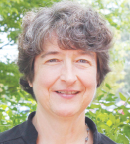In 2018, the University of Michigan Medical School in Ann Arbor launched the Integrative Oncology Scholars Program, with the goal of teaching oncology health-care providers how to evaluate the scientific evidence on the efficacy and safety of complementary therapies for patients with cancer. The year-long educational program, which is open to physicians, nurses, physician assistants, social workers, psychologists, pharmacists, and occupational and physical therapists, combines in-person team-based learning and eLearning technologies to expand providers’ knowledge about the validity of complementary therapies in oncology care and how best to employ them to combat myriad symptoms of cancer and its treatment. These therapies can include acupuncture; mind-body practices, including yoga, meditation, and music therapy; physical activity; and nutrition.
Bringing Standardized Integrative Care to Patients
The development of the Integrative Oncology Scholars Program was made possible with a 5-year grant of $1,019,235 from the National Cancer Institute and is offered free of charge each year to 25 eligible oncology professionals nationwide. The program, which is now in its third year, requires attendees to complete 72 in-person hours over three 3-day sessions—occurring over a Friday, Saturday, and Sunday—at the University of Michigan and 5 hours per month of Internet-based coursework, for a total of about 132 hours. Each participant accepted into the program receives up to a $1,500 stipend for travel and lodging expenses to attend the in-person sessions. New in 2020, the program will offer 25 continuing medical education (CME) credits for each of the 3-day in-person sessions, for a total of 75 CME credits.
The ultimate goal of the program is to train 100 oncology providers in integrative medicine in both academic and community practice settings to bring evidence-based, standardized care to the field of integrative oncology. The 2019–2020 cohort of integrative oncology scholars began their training in August 2019 and includes 11 physicians from the fields of pediatric, medical, radiation, and gynecologic oncology, as well as pediatric and cardiothoracic anesthesiology, and palliative medicine; 4 advanced practitioners; 7 social workers and clinical therapists; 1 physician assistant; 1 pharmacist; and 1 clinical psychologist.

Suzanna M. Zick, ND, MPH
For the 2020–2021 class of participants, the curriculum will emphasize improving providers’ communication skills in eliciting and conveying information to patients about the potential risks and benefits of utilizing complementary practices in their oncology care.
“We want oncology providers to ask patients about their use of complementary medicine in a neutral fashion, without bias,” said Suzanna M. Zick, ND, MPH, Program Director of the Integrative Oncology Scholars Program and Co-Director of Integrative Family Medicine and Research Associate Professor at the University Michigan Medical School. “Our program emphasizes that the practice of effective integrative medicine is about providing patient-centered care and shared decision-making to determine patients’ goals for using these remedies and what their unmet needs are that are driving the use of these therapies. And then we can provide patients with the most accurate, evidence-based information we have on a specific complementary remedy’s safety and effectiveness to help them achieve those goals.”
Reserve a Place in the Program
Applications for the 2020–2021 training year are being accepted now and will end on January 10, 2020. To learn more about the Oncology Scholars Program and to submit an application, visit https://sites.google.com/umich.edu/ioscholars. ■
DISCLOSURE: Dr. Zick reported no conflicts of interest.

